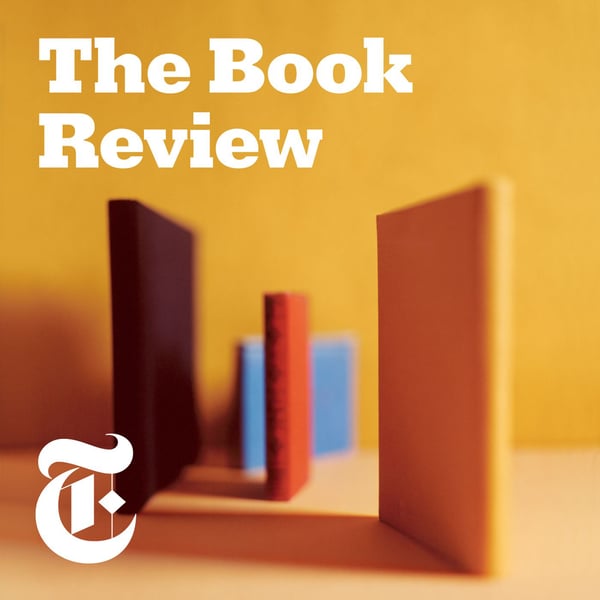Richard Powers on ‘Bewilderment’
The Book Review
The New York Times
4.2 • 3.7K Ratings
🗓️ 1 October 2021
⏱️ 65 minutes
🧾️ Download transcript
Summary
Transcript
Click on a timestamp to play from that location
| 0:00.0 | How do you follow an epic Pulitzer Prize-winning novel like The Overstory? Richard Powers will be here to talk about his new book, The Wildermint. |
| 0:17.0 | What role does W.E.B. Du Bois play in the love songs of W.E.B. Du Bois? |
| 0:25.0 | Honor a Phenon Jeffers will join us to talk about her debut novel. Plus, my colleagues and I will talk about what we're reading. |
| 0:35.0 | This is the Book of Reparkest for The New York Times. It's October 1st. I'm Pamela Paul. |
| 0:43.0 | Richard Powers joins us now from Knoxville, Tennessee. His new novel is Be Will Dermint and of course his most recent novel The Overstory won the Pulitzer Prize for fiction. Richard, thanks for being here. |
| 1:02.0 | Oh, it's my great pleasure. Thanks for having me on. This new novel, The Wildermint, has at its heart three people. One of them dead from the beginning of the novel, so we're not giving anything away. |
| 1:13.0 | But tell us a little bit about these three characters, Theo Byrne, his son Robin and his late wife, Alyssa. |
| 1:20.0 | Theo is an astrobiologist recently widowed in his early 40s and he has a nine-year-old son Robin who is neurodivergent, has received a couple of different diagnoses, but who is in intense, easily excitable, very lovable, but quick to anger and quick to fly into rage. |
| 1:44.0 | And these two lost boys are making their way together after the death of Robin's mother and Theo's wife Alyssa a couple of years before the start of the novel. |
| 1:56.0 | You describe Robin or Robbie as neurodivergent and it seems like it's a deliberate choice at the beginning of the novel that you don't label him in any other way that you don't talk about. |
| 2:09.0 | You don't even mention specifically what diagnoses that certain professionals have given him. Is that felt like a very deliberate choice? |
| 2:17.0 | Oh, it is. And Theo who narrates the book himself pushes back against any diagnoses that are too clinical or too specific. |
| 2:28.0 | He's quite aware of a modern propensity to stop looking at the individual and start considering or reifying the category of the diagnosis and it bears pointing out that diagnoses that are quickly, you know, or easily passed along these days, such as Asperger syndrome, aren't even recognized in the latest edition of the DSM, the diagnostics and statistical manual of mental conditions. |
| 2:57.0 | And Theo's feeling, I think, the one that sets the story in motion is nicely summarized at the beginning of the book where he says after a doctor tries to tell him your son is on the spectrum. |
| 3:09.0 | He wants to reply to the doctor. We're all on the spectrum. That's what a spectrum is. And we need to remember not to substitute that diagnosis for the individual involved. |
| 3:22.0 | There's also it seems that this relates to another theme in the novel, which is what is normalcy and psychological or human terms when society or the world is patently abnormal. |
| 3:35.0 | And this was was a little bit in the over story as well, but is more directly raised here. |
| 3:40.0 | It's a novel about empathy. It's really a kind of love story. It's a love story of a father for his strange son, you know, a father who would do anything at all in his power to protect this boy from the world. |
| 3:54.0 | And it's a love story of the son for his dead mother who he has to now recreate through his own imagination. |
| 4:01.0 | And it's also the love story of these two boys for two lost boys for the living world that's quickly receiving from them. |
| 4:10.0 | The novel explores those kinds of love through the question of empathy. What does it feel like to be someone very, very different from yourself? |
| 4:21.0 | And how can you find empathy without requiring that other person to resemble you and to share the outlook on the world that you have? |
... |
Transcript will be available on the free plan in -1278 days. Upgrade to see the full transcript now.
Disclaimer: The podcast and artwork embedded on this page are from The New York Times, and are the property of its owner and not affiliated with or endorsed by Tapesearch.
Generated transcripts are the property of The New York Times and are distributed freely under the Fair Use doctrine. Transcripts generated by Tapesearch are not guaranteed to be accurate.
Copyright © Tapesearch 2025.

